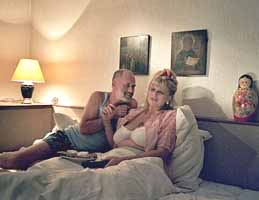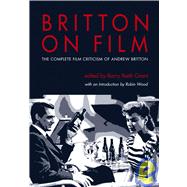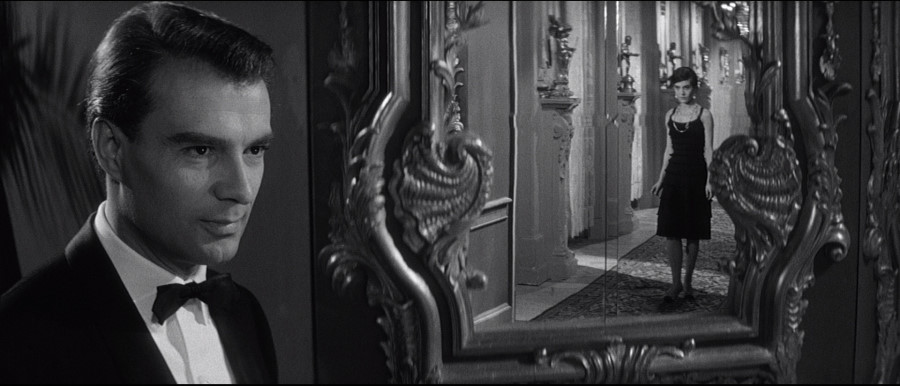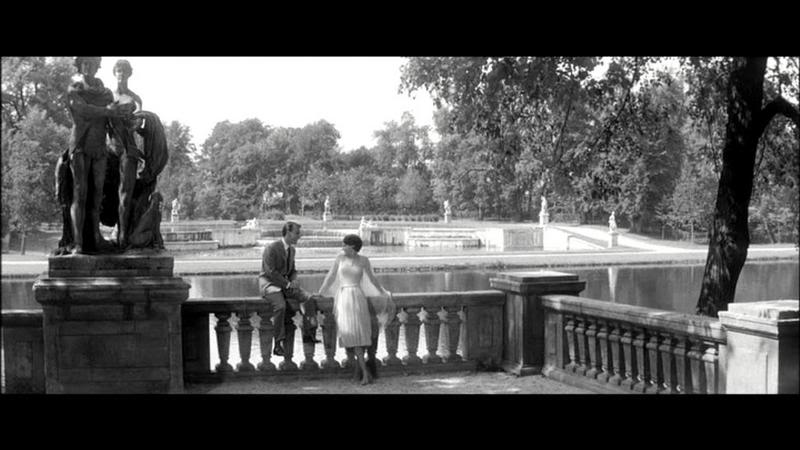
The blighted relationships explored by a Prague psychologist with marital troubles of her own (Jana Janekova, excellent) are the focus of Vera Chytilova’s 2006 Czech feature, her best in many years. With its aggressively mobile camera and abrupt editing, the movie seems to lurch from one miniplot to the next as if in a punch-drunk trance. Like much of Chytilova’s best work (Daisies, The Apple Game), it sometimes verges on hysteria, but it’s clearly enhanced by the experience of screenwriter Katrina Irmanovova, a therapist herself. And her fictional patients evoke the letter writers of Nathanael West’s novel Miss Lonelyhearts in their cumulative misery, suggesting some poetic yet plausible version of the modern world. In Czech with subtitles. 108 min. (JR) Read more
From Film Comment (March-April 2009). — J.R.


Britton on Film
The Complete Film Criticism of Andrew Britton
Wayne State University Press, $39.95
Even if you don’t agree with the claim in Robin Wood’s Introduction that Britton (1952-1994) “was, and remains, quite simply, the greatest film critic in the English language,” this hefty collection edited by Barry Keith Grant, 534 large-format pages long, certainly proves that Wood’s cantankerous Marxist disciple, who published mainly in Movie (U.K.) and CineAction (Canada), was a formidable figure. To my taste, the two best demonstrations of his intellectual and ethical strength are his separately published Katherine Hepburn: The 30s and After (1984), the best book-length study of a film actor that I know (misleadingly retitled Katherine Hepburn: Star as Feminist in its U.S. edition), and his passionate defense of Mandingo in Movie (1976), which single-handedly established that film’s importance amidst a chorus of jeers. And even if the absence of the first study from this book already makes its subtitle not quite accurate, the full range of Britton as both a polemicist and an analyst of everything from Detour to Madame de… to Jaws to Tout va bien is amply on display here.
One limiting factor here is the amount of space devoted to refuting such academic touchstones as Screen in the 70s and The Classical Hollywood Cinema — engaging with labyrinthine debates that seem less consequential now, at least to nonacademics like myself, than they did at the time. Read more
This appeared in the May 1, 2008 issue of the Chicago Reader. — J.R.

Last Year at Marienbad ****
DIRECTED BY ALAIN RESNAIS
WRITTEN BY ALAIN ROBBE-GRILLET
WITH GIORGIO ALBERTAZZI, DELPHINE SEYRIG, AND SACHA PITOEFF

It’s too bad Last Year at Marienbad was the most fashionable art-house movie of 1961-’62, because as a result it’s been maligned and misunderstood ever since. The chic allure of Alain Resnais’ second feature — a maddening, scintillating puzzle set in glitzy surroundings — produced a backlash, and one reason its defenders and detractors tend to be equally misguided is that both respond to the controversy rather than to the film itself.

“I am now quite prepared to claim that Marienbad is the greatest film ever made, and to pity those who cannot see this,” proclaimed one French critic, even as others ridiculed what they perceived as the film’s pretentious solemnity — overlooking or missing its playful, if poker-faced, use of parody as well as its outright scariness. Dwight Macdonald, who admitted to seeing the movie three times in a week, confessed in Esquire that it made him feel like a dog in one of Pavlov’s experiments. In the Village Voice, on the other hand, Jonas Mekas claimed that “the film begins and ends in the brain of Alain Robbe-Grillet, who wrote the script” and added, “Its forced intellectualism is sick.” Read more






